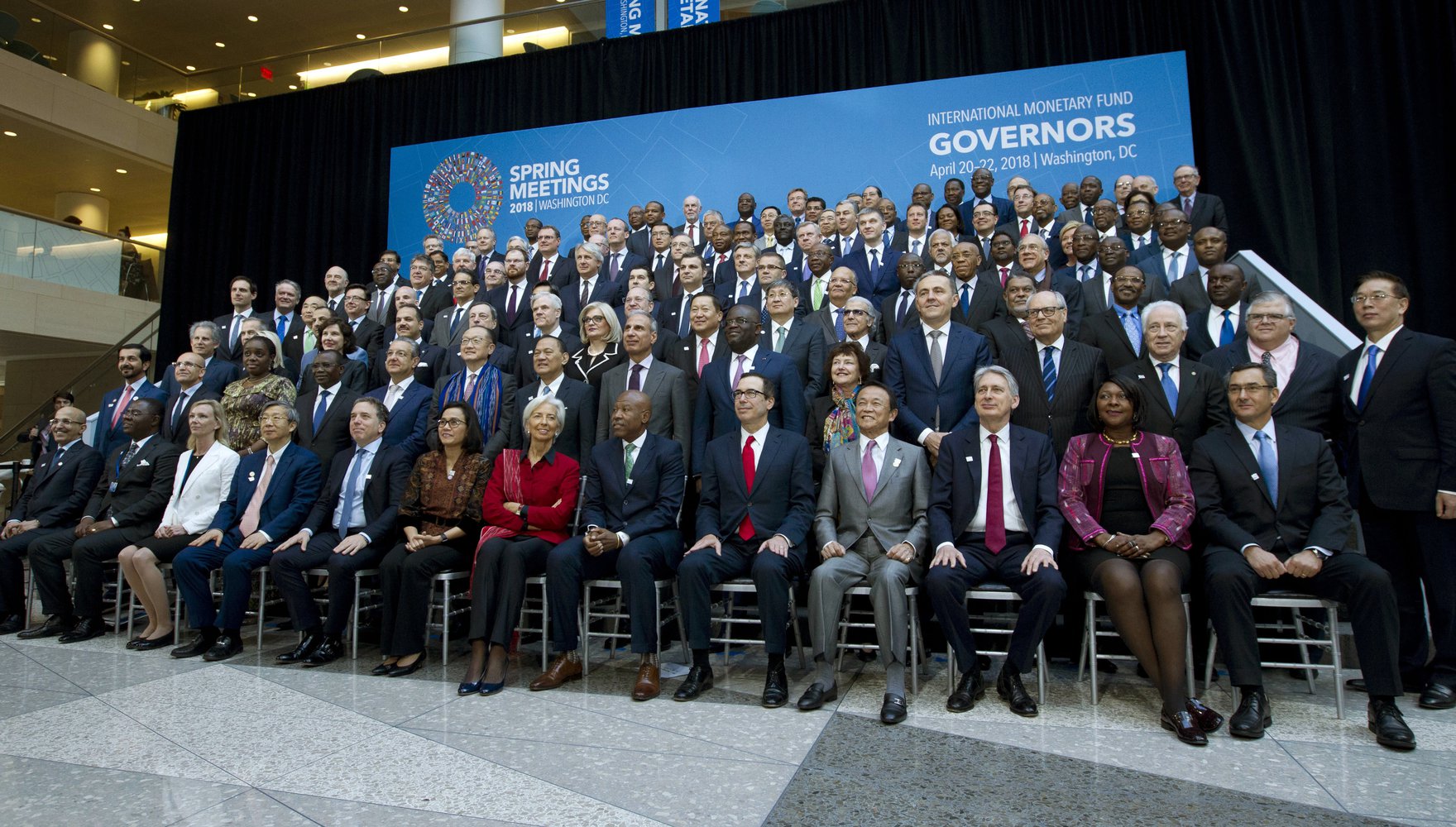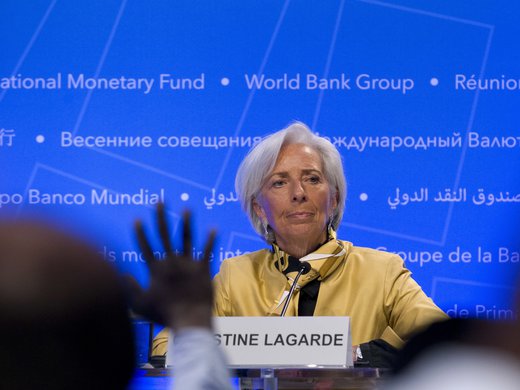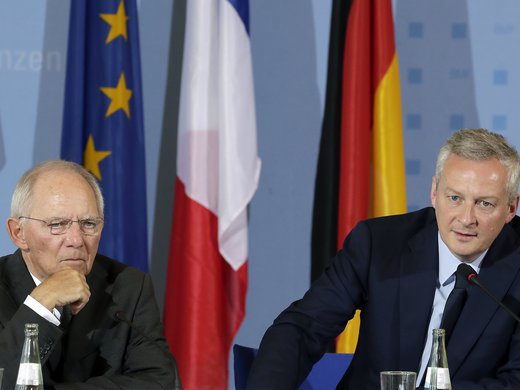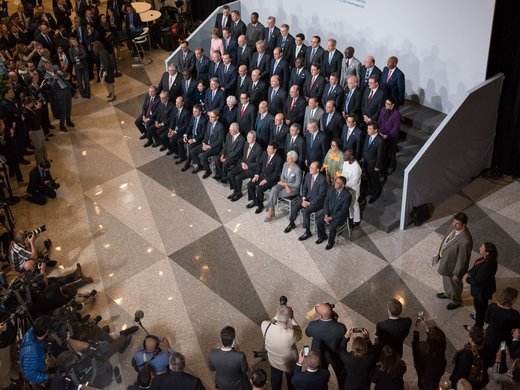Although overshadowed by the ongoing international trade debacle, cryptocurrencies and the impact of new technologies on the economy and financial system were a prominent theme at the 2018 Spring Meetings of the International Monetary Fund (IMF). The IMF is trying to position itself as the key international institution for facilitating cooperation on cryptocurrency regulation and assisting with the adoption of blockchain technology. But the institution has not yet shown that it can be innovative enough to effectively fill the knowledge gap of policy makers regarding new technologies.
When discussing cryptocurrencies, financial policy makers make an important distinction between the financial assets and the underlying technology. Cryptocurrencies are financial assets that are generated and transferred through a decentralized network that is secured using cryptography. This underlying technology — called distributed ledger technology or blockchain — is essentially a digital ledger on which transactions are recorded.
Policy makers agree that the regulation of some activities related to the use of cryptocurrencies is necessary. For example, there is no tolerance for the use of cryptocurrencies (or any financial asset) to facilitate money laundering or the financing of terrorism and other illicit activity. Regulators also agree that they have a role in protecting consumers by trying to identify and prevent fraudulent activity related to cryptocurrencies. On these fronts, the Group of Twenty (G20) finance ministers and central bank governors have committed to supporting the development and implementation of appropriate regulations.
While there remains little concern that cryptocurrencies are at risk of overtaking fiat currencies — state-issued currencies — their emergence has prompted central banks to recognize that the issuance and circulation of money needs to adapt to the digital age. That’s why central banks around the world are assessing the merits of issuing central bank-issued digital currencies.
Policy makers also agree that the underlying blockchain technology is useful for improving the efficiency of just about any aspect of financial transactions, including securities issuance, trade financing and wholesale payments. These efficiency gains come through eliminating much of the intermediation in financial transactions, which could mean quicker and cheaper transactions, as well as potentially stronger security and greater transparency of exchanges.
The assets and applications that have and will be generated by these new technologies are not yet fully understood by policy makers. This gap in knowledge and a lack of foresight are creating uncertainty about how to develop policy to minimize harm to investors and consumers while also facilitating efficiency-enhancing financial system innovation.
The people who developed blockchain technology intended for it to disrupt the way financial transactions are facilitated by eliminating the need for trusted, third-party intermediation. Further development of blockchain applications provide opportunities to strengthen both the efficiency and stability of the financial system. However, the provision of financial services by decentralized applications, such as Bitcoin, or by firms operating in foreign jurisdictions with low regulatory compliance could increase the vulnerability of the global financial system.
Policy makers therefore have an interest in helping to integrate the technology into financial and economic infrastructures that can be appropriately monitored and regulated. If the technologies developed by central banks and regulated firms are to thrive, they must be able to compete with those developed by groups or firms that operate outside of the regulated financial system.
This is where the IMF runs into hurdles. Certainly, with the Fund’s large constituency, it can cast a wide net in facilitating international cooperation on cryptocurrencies policies. But the IMF isn’t exactly known for providing innovative policy advice — quite the opposite.
The IMF’s history of strict adherence to neo-liberal principles has given the impression that it is dogmatic in its advice. This perception is, however, changing. The institution has made significant efforts to be more inclusive in its policy goals, while also tailoring its advice to the individual context and circumstances of each country.
Still, the IMF is loaded with economists who are trained to analyze and identify problems within a specific economic framework. These well-trained economists might not be well equipped to understand how new technologies could change the way the economy functions. Sparking a culture of innovation and adaptability requires diversity of thoughts and perspectives. The IMF needs to start from the ground up in fostering such a culture by hiring analysts and middle managers from a diverse range of backgrounds, including technologists who understand the technology and take a forward-looking perspective, as well as social scientists who understand human behaviour and can assess social change.
The IMF has, to an extent, recognized its limitations. Christine Lagarde indicated that central bankers need to be “open to fresh ideas and new demands, as economies evolve” and that the IMF “will also have to be open to change, [by] bringing new parties to the table.” Arguably, it’s not enough to bring new parties into the discussion; instead, the IMF needs to integrate a diverse range of perspectives directly into its analytical capacity.
Creating a more diverse and innovative team of analysts would not only be useful in addressing the issue of cryptocurrencies and blockchain technology. It would also help create more thoughtful and forward-looking advice in all areas of economics and financial policy making, further boosting the institution’s credibility as an effective leader in facilitating international policy cooperation.



